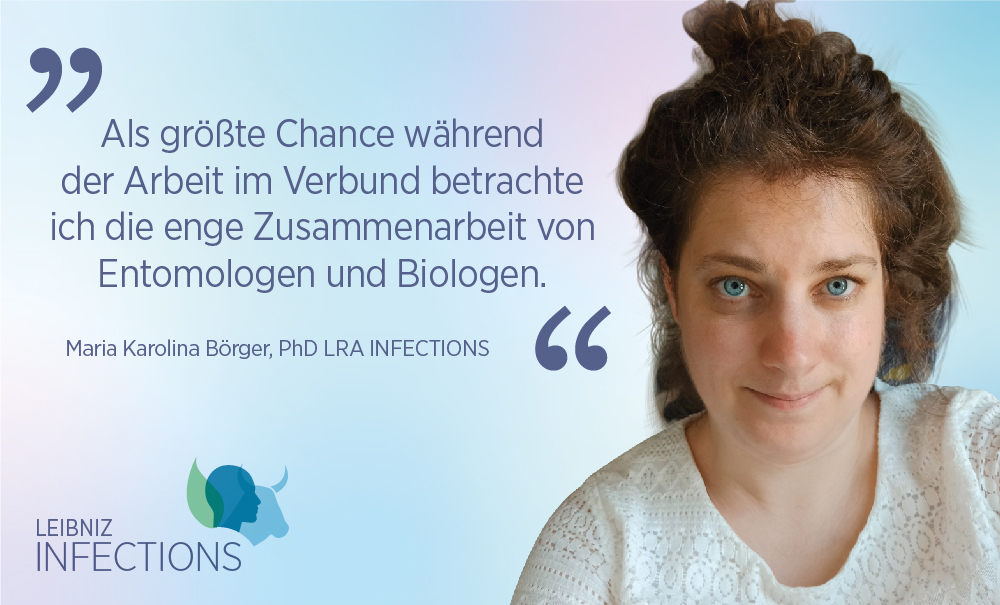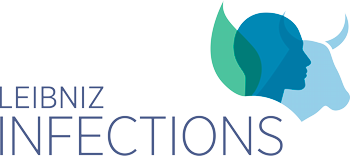PhD introduction of the week: Maria Karolina Börger, Forestry Scientist and Ecologist in IPT4.
The project "Arthropods as vectors for AMR microbes", studies the role of the common house fly as a vector for antimicrobial resistant bacteria.
If flies ingest antimicrobial resistant bacteria, these can be passed on to humans, sometimes causing severe nosocomial infections. Through a better understanding of the flight radii and habitat binding of the house fly, strategies will be identified to hinder the spread of antimicrobial resistant bacteria.

Profile Maria Karolina Börger
Name: Maria Karolina Börger
Age: 33
Where and what have you studied?
Bachelor of Science in "Forestry and forest ecology" at University of Göttingen, Master of Science in "Ecology, Evolution and Nature Conservation" at University of Potsdam.
Which field of research interests you the most?
I´m highly intrested in vector ecology and the evolution multi-drug resistant bacteria.
Why did you apply to the Leibniz Research Alliance INFECTIONS?
I applied for the Leibniz Research Alliance because I like the interdisciplinarity of the approach. So different scientific disciplines like entomology, molecular biology and bioinformatics work together.
Describe your research project briefly and in a generally understandable way:
In my research project I aim to understand the role of dipterous flies as vectors for antimicrobial resistant microorganisms. Flies, like for example the common housefly, breed in feces or decaying organic matter. During breeding and feeding they pick up bacteria - and also antimicrobial resistant bacteria- and transport them to urban areas and human indoors. This is a threat to immunodeficient people as antimicrobial resistant microorganisms can cause severe infections. In my project I focus on transmission routes and dissemination of antimicrobial resistant bacteria by the vector fly.
What do you think will be the biggest challenges but also the biggest opportunities during your work?
I expect challenges during the sampling period.To understand their flight range flies cannot be tacked with GPS-transmitters. Mark-release recapture experiments were necessary to determine the dispersal and dissemination of antimicrobial resistant bacteria by flies. A big opportunity of this project is the combination of bioinformatic and entomology. Both are necessary to understand the role of flies as vectors.
Thanks for the interview. We are happy to have you on board!

